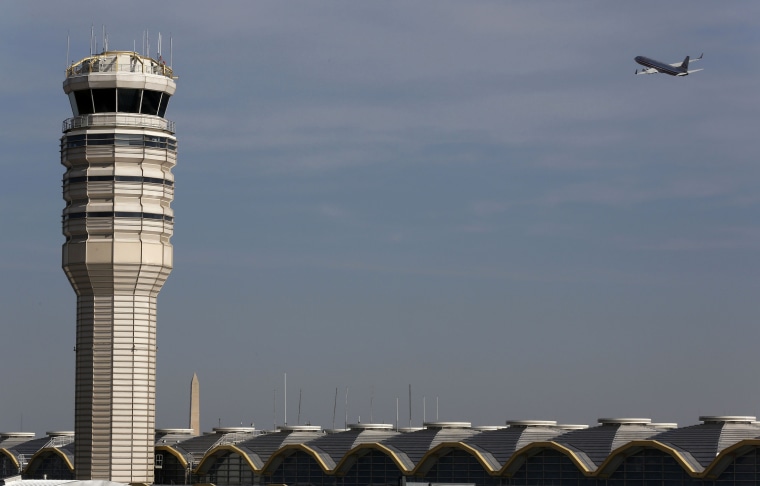
If the FAA furloughs air traffic controllers and a plane full of passengers sits on the tarmac for 3 or more hours, should the Department of Transportation (DOT) ding the carrier for violating the government’s three-year-old rule against extended tarmac delays?
The airline industry says “no” and two industry trade groups — Airlines for America (A4A) and the Regional Airline Association (RAA) — have filed a motion asking DOT to suspend the rule in the event such violations are a result of the sequestration-related furloughs that went into effect Sunday.
“We believe granting this exemption serves the best interests of the flying public by providing airlines with the operating flexibility necessary to focus on responding to the FAA’s projected delays in ways that minimize and avoid worsening the disruption and inconvenience to our passengers,” said A4A spokesperson Katie Connell via email.
The request seeks to spare airlines from the fines laid out under the rule that was first put in place in April 2010 as a response to several high-profile cases in which passengers were stuck on grounded airplanes for up to 9 hours.
Under the rule, carriers that violate the rule are subject to fines of up to $27,500 per passenger. In August 2011, the rule was extended to include international flights, which can incur the same penalties if they don’t offer passengers the opportunity to disembark after 4 hours.
Although bitterly opposed by the airline industry when the rule was first proposed, it has led to a drastic decline in the number of extended tarmac delays. The most recent incident involved 34 planes operated by US Airways and its partners that were stranded during a mid-February snowstorm in Charlotte, N.C., an incident DOT is currently investigating.
For proponents of the tarmac delay rules, the industry motion represents a case of déjà vu all over again: “The airlines are rehashing the same arguments they used before,” said Paul Hudson, president of the consumer group FlyersRights.org. “Their request is for 90 days or the length of the sequester and there’s no doubt they will try to extend it indefinitely.”
For Hudson, the issue should be considered a “non-starter” because the rule includes language that releases the airlines from liability for situations that are out of their control.
“The DOT already has the discretion not to fine them,” he told NBC News. “There are provisions that if there are air traffic control or security reasons that prevent planes from getting back to the gate then the airlines are relieved of the obligation.”
In the meantime, both the furloughs and bad weather have led to an uptick in delays in recent days. According to FAA, there were 1,200 delays in the system on Monday that were attributable to staffing reductions with 1,400 additional delays caused by weather and other factors.
Similar, albeit fewer, delays were reported on Tuesday with wind, weather and staffing issues leading to late-afternoon delays in Boston, Chicago, Los Angeles and New York. The worst delays were at Newark (weather/wind) and LaGuardia (staffing), both of which were reporting delays of 115 minutes.
Obviously, such delays aren’t long enough to trigger the tarmac delay rule although they’re plenty long enough to inconvenience passengers. Travelers who wish to weigh in the issue of fines, furloughs and who’s responsible for the current situation have until 5 p.m. Friday to send their comments to DOT.
Rob Lovitt is a longtime travel writer who still believes the journey is as important as the destination. Follow him on Twitter.